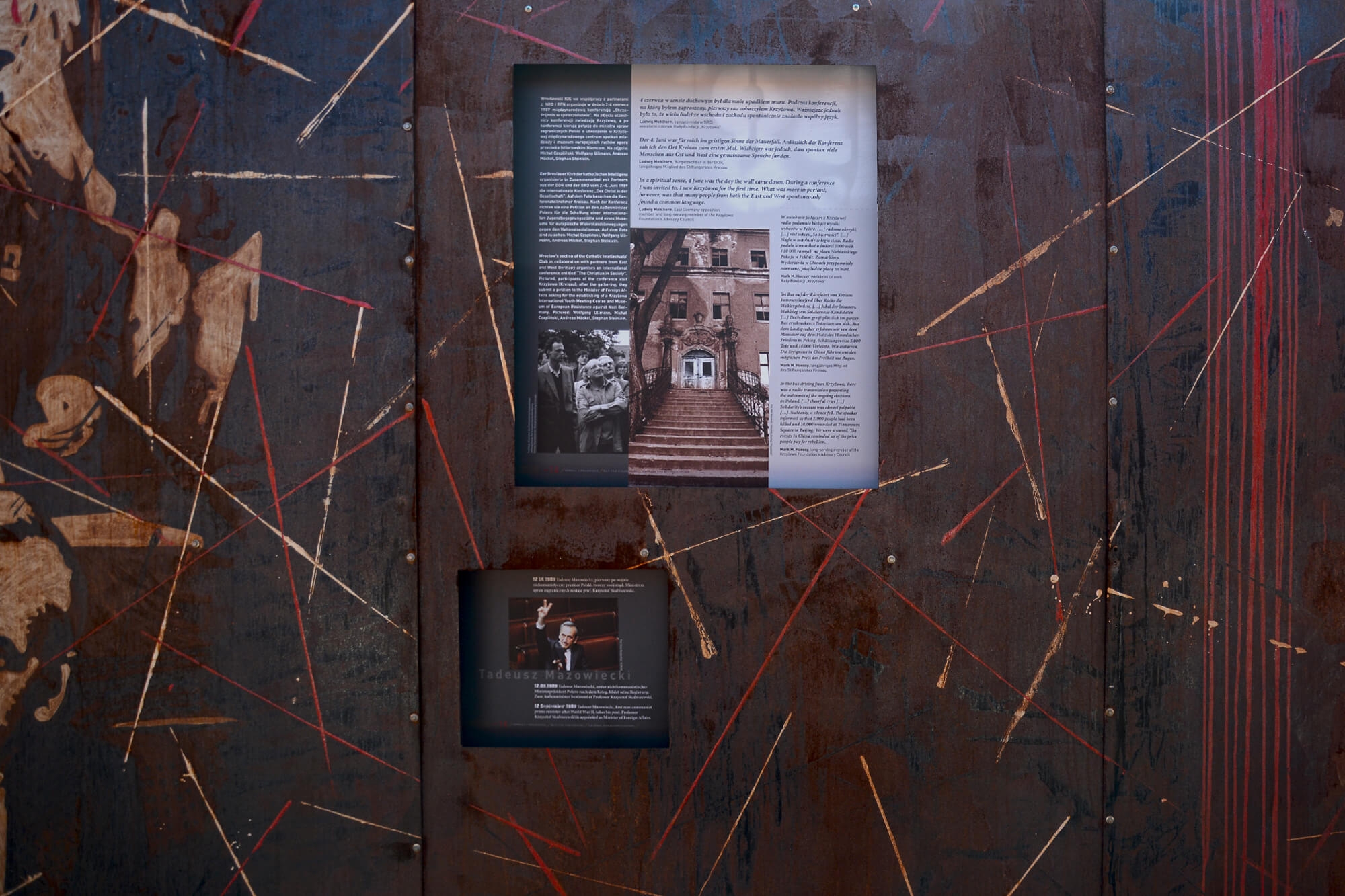Courage and
reconciliation
-
What is the KIK?
The communists tried to reduce the influence of the Church in the public sphere. After the disassociation from Stalinism the Communist Party was forced to make concessions to the Catholic Church. These included the founding of the Catholic Intellectuals Club in Poland (KIK: Klub Inteligencji Katolickiej) in some cities. The first KIK was founded in 1956 in Warsaw. One year later further clubs were founded in Toruń, Poznań and Kraków. In 1958, the KIK was registered in Wrocław. The club in Wrocław largely dealt with the German-Polish relations. Based on Christian conviction, a dialogue between Germans and Poles was sought out as well as ecumenism. The KIK in Wrocław and the Aktion Sühnezeichen (Action Reconciliation), acting as the main initiators together organized the conference “Christian in society” in 1989.
-
What were the topics of the conference in Wrocław and Krzyżowa in 1989?
The conference “Christians in society” took place from 2nd to 4th June in 1989 in Wrocław and Krzyżowa with participants from Poland, Eastern and Western Germany, the Netherlands and the USA. The topics were the Kreisau Circle and Eugen Rosenstock-Huessy and also the revival of the place. At that time the idea to establish a meeting centre already existed and caused further discussions. The petition sent to the Polish foreign ministry by the participants at the end of the conference was one of the reasons why Kreisau became the place of the reconciliation mass in November 1989.
In December 1989, the follow-up conference “Christian in society 2” took place. In June 1990, the Krzyzowa Foundation for Mutual Understanding in Europe was established. Previously, the KIK of Wrocław had purchased the estate from the Polish state for a symbolic price and now brought it into the foundation as foundation capital.
-
The 4th of June 1989 - a date of change?
One of the results of the negotiations at the round table was the agreement on new elections in Poland. On 4 June 1989, a part of the Parliament was elected freely, the rest was reserved for the communists. Solidarność received almost all freely electable seats in the Polish Parliament. In autumn 1989, Tadeusz Mazowiecki as the first non-communist prime minister of the post-war period could form his cabinet.
On Sankt Annaberg (Saint Anne Mountain) in Upper Silesia, about 150km from Krzyzowa, the 4th of June became a special date. For the first time after the end of the Second World War a mass in Poland was celebrated in German. For a long time the German minority fought for this right, which they were finally granted due to the political changes.
On the same day, the Chinese government brutally suppressed a protest movement at the Tiananmen Square in Beijing, which demanded more democracy and a better rule of law. The declared numbers of deaths range from 300 to 5,000. This situation shows which consequences the battle for freedom may have.



